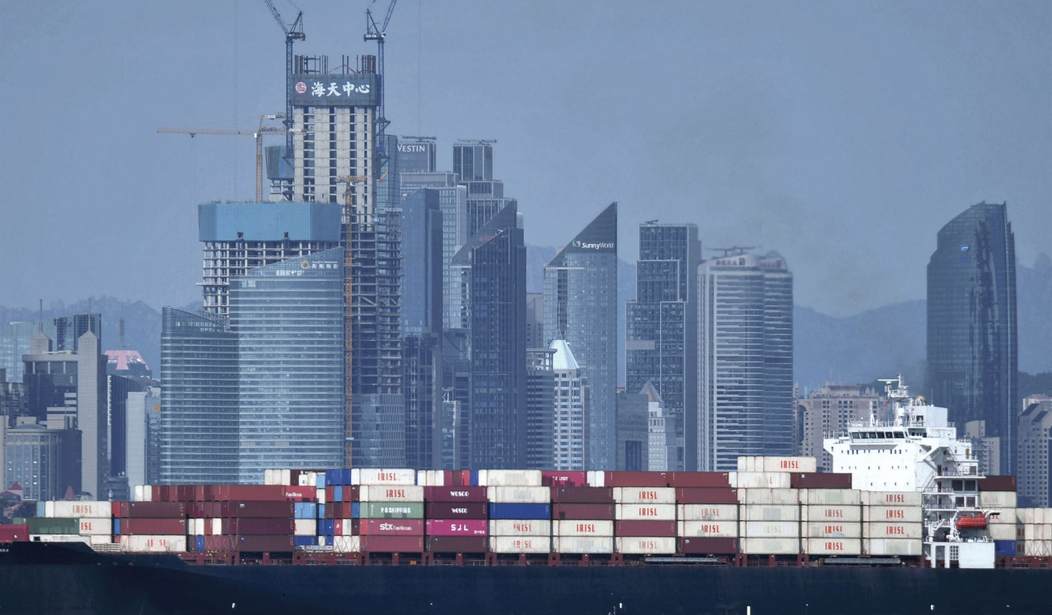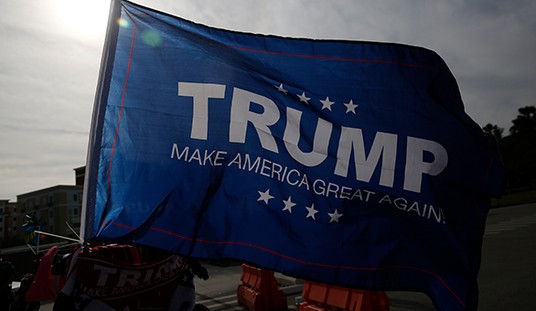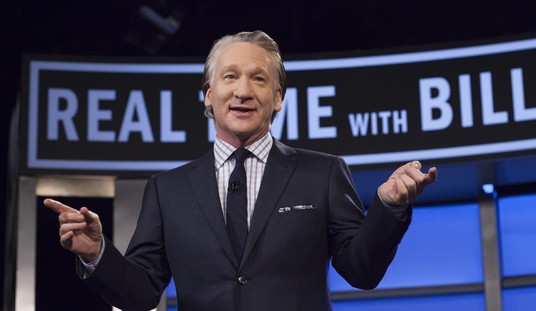In recent years, there has been a resurgence of the idea that protective tariffs can restore America's economic greatness, based on the interpretation that they fueled our growth in the 19th century and can do so again in the 21st century. This claim isn't just wrong; it's dangerous.
Take recent comments by the conservative pundit Oren Cass, who said "The way America went from colonial backwater to this globe-spanning industrial colossus was not free markets and free trade. It was aggressive protection of our domestic market." Former President Donald Trump echoes similar ideas in his many pronouncements about why, if he's reelected, tariffs will be a big and important tool to revitalize America's economy.
At a superficial level, it's easy to see how someone could think tariffs promote domestic growth. As the Cato Institute's Scott Lincicome rightly notes, "the issue (is) a classic case of correlation versus causation: Because tariffs were high during a period of rapid American growth and industrialization, so the argument goes, the former caused the latter."
Yet correlation isn't causation. Tariffs weren't the cause of American prosperity. Not even close.
To begin, economist and trade historian Douglas Irwin points out that "rather than higher tariffs causing higher growth, the relationship could be spurious: land-abundant countries relied on customs duties to raise government revenue and also enjoyed favorable growth prospects, with little link between the two." In 19th-century America -- about as land-abundant as it got -- the sectors that grew the most were services and agriculture, which were not much protected by tariffs.
Recommended
In addition, at the time, the United States was the net beneficiary of foreign capital investment, which resulted in the trade deficits that Mr. Trump so hates today. This inflow of global capital contributed to a burst of new technology and ideas, all put to the test in a free market.
In other words, despite tariffs on some imported goods, America's 19th-century economy was extremely open.
While Irwin finds that the economic distortions caused by high tariff rates were relatively small, economist Brad DeLong reminds us that the harm (especially on exporting farmers and the domestic producers who had to pay higher prices for imported capital goods) outweighed the benefits to tariff-protected industries.
The non-economic costs of tariffs were also high. Tariffs fueled corruption and other profit-seeking with no real value to society. Contributing to the Cato Institute's "Defending Globalization" project, Phillip Magness writes that "high tariff protectionism continued to attract rent-seeking interest groups. The sheer extravagance of the public corruption around tariff schedule revisions came to a head in the late 19th century, eventually leading reformers to call for the abandonment of a tariff-based revenue system." (That's how we got the highly distortive income tax.)
Also overlooked by those claiming that 19th-century tariffs made America great is that the country's biggest import at the time was immigrants, who incurred no tariffs. As economists Cecil Bohanon and T. Norman Van Cott argue in "Tariffs, Immigration, and Economic Insulation," weighing the impact of tariffs on economic growth without accounting for massive immigration -- which increased from about 200,000 individuals a year in 1865 to more than 1,000,000 in 1910 -- can only lead to questionable conclusions. They explain that "[t]he impact of high tariffs, clearly an insulating policy, was swamped by free immigration, a quintessential policy of economic openness."
Mr. Trump is an avowed restrictionist on both immigration and trade. And so, if a second Trump presidency brings higher tariffs and further immigration restrictions, we won't be as fortunate as were our 19th-century forebears.
Making matters worse is that today's economy is vastly different from that of a century ago. Globalization has interconnected markets and supply chains in unprecedented ways. Half of what Americans import are inputs they use to produce goods domestically. Tariffs on these imports increase production costs, making American products less competitive both at home and abroad.
Furthermore, the service sector -- comprising industries like technology, finance, and health care -- now represents nearly four-fifths of the U.S. economy. These sectors thrive on innovation, skilled labor, and access to global markets, rather than on protectionist policies.
Reimagining tariffs as a panacea for economic woes is not only historically inaccurate but economically unsound. The America of the past grew in spite of tariffs, not because of them. If higher tariffs are imposed today, history will not look kindly on those who imposed them.























Join the conversation as a VIP Member